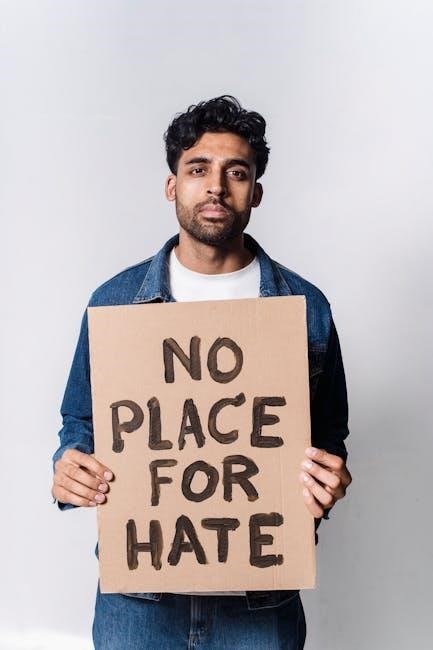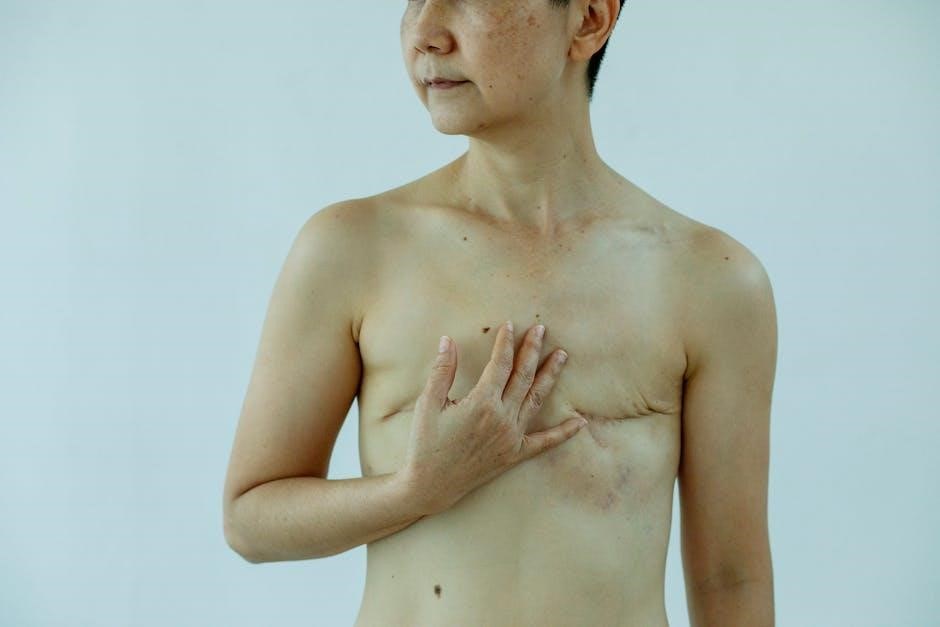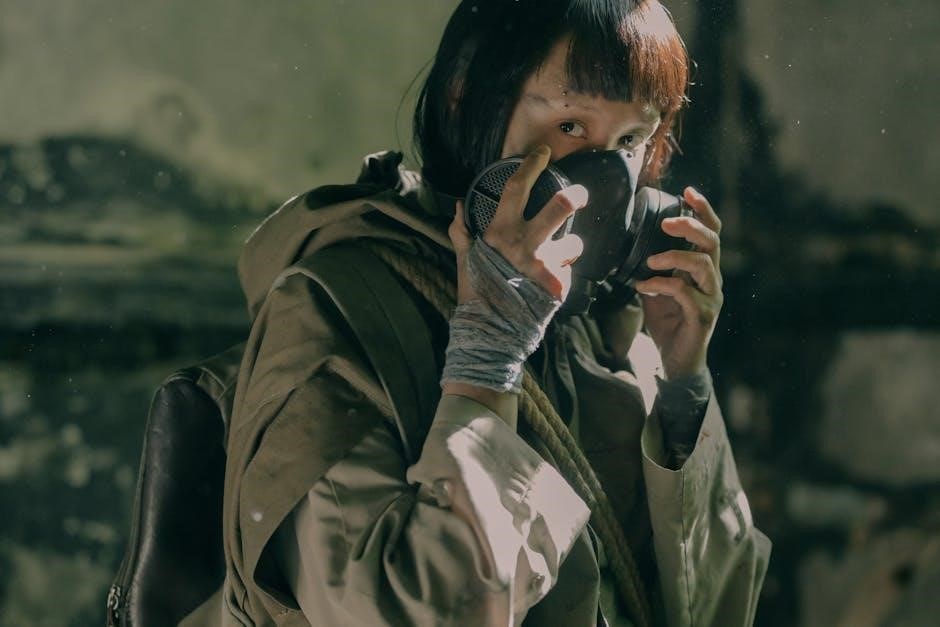Survivor guilt is a natural emotional response to surviving traumatic events while others perish․ It reflects deep empathy and a sense of moral responsibility․
1․1 Definition and Overview
Survivor guilt is a complex emotional response to surviving traumatic events while others perish․ It involves feelings of guilt, responsibility, and empathy, often accompanied by a deep moral conflict․ Unlike regret, survivor guilt stems from a belief that one should have shared the fate of others, creating a profound psychological burden․
1․2 Historical Context and Relevance
Survivor guilt has been documented across various historical events, such as wars, natural disasters, and genocides․ It gained significant attention post-WWII, particularly among Holocaust survivors, and later with Vietnam War veterans․ Understanding its historical context highlights its universal nature and enduring relevance in human experiences, making it a critical area of study in psychology and ethics․
Psychological Origins of Survivor Guilt
Survivor guilt stems from empathy, responsibility, and self-indictment, often arising when individuals feel they unfairly survived while others perished, despite knowing they were not at fault․
2․1 Empathy and Responsibility
Empathy and responsibility are central to survivor guilt, as individuals emotionally connect with victims, often feeling a moral duty for their survival․ This connection fosters guilt, even when blameless, creating internal conflict between empathy for others and self-directed responsibility for outcomes beyond their control․
2․2 The Role of Self-Indictment
Self-indictment in survivor guilt involves intense self-blame, where individuals wrongly hold themselves accountable for events beyond their control․ This psychological mechanism amplifies feelings of guilt, fostering a cycle of self-reproach and emotional turmoil, even in the absence of actual culpability, highlighting the complex interplay between personal morality and external circumstances․

Moral Implications of Survivor Guilt
Survivor guilt raises profound moral questions about empathy, responsibility, and self-forgiveness, emphasizing the duty to balance obligations to others with the need for personal moral repair and healing․
3․1 The Duty to Self and Others
Survivor guilt often creates tension between duties to oneself and others; Individuals may feel compelled to honor those lost while navigating personal healing․ This moral conflict highlights the need to reconcile self-forgiveness with responsibilities toward others, fostering a balance that acknowledges both personal and collective well-being in the aftermath of trauma․
3․2 Self-Forgiveness and Moral Repair
Self-forgiveness is crucial for healing from survivor guilt, allowing individuals to release self-indictment and rebuild moral integrity․ By acknowledging their humanity and the circumstances beyond their control, they can repair their sense of self and find peace, transforming guilt into a catalyst for personal growth and ethical living․
Real-Life Examples and Case Studies
Real-life examples illustrate survivor guilt through stories of war veterans, natural disaster survivors, and accident victims, highlighting the emotional and moral struggles of those who endure․
4․1 Stories from War Veterans
War veterans often experience profound survivor guilt, grappling with feelings of responsibility for fallen comrades․ Many question why they survived while others did not, leading to internal conflict and emotional turmoil․ These stories reveal the heavy moral burden carried by those who return, highlighting the complexity of guilt intertwined with duty and sacrifice․
4․2 Survivor Guilt in Civilian Contexts
Survivor guilt is not limited to combat scenarios; civilians also experience it in situations like natural disasters, accidents, or illnesses․ Individuals who survive while others do not often feel overwhelming guilt, questioning their survival despite lack of control․ This emotional response highlights the moral complexity of guilt in everyday life, beyond war zones․

The Author’s Purpose and Argument
The author explores the moral complexities of survivor guilt, arguing it stems from empathy and self-indictment, emphasizing its potential to foster moral growth and responsibility․
5․1 The Central Claim of the Article
The article’s central claim is that survivor guilt, while painful, serves a moral purpose․ It emerges from empathy and self-indictment, highlighting a deep sense of responsibility․ The author argues that this guilt can lead to moral growth and self-forgiveness, emphasizing its importance in understanding human moral behavior and emotional resilience in the face of tragedy․
5․2 The Significance of Moral Courage
Moral courage is vital in addressing survivor guilt, enabling individuals to confront their feelings and take responsibility․ It fosters resilience and ethical behavior, transforming guilt into a catalyst for growth and moral integrity․ This courage is essential for navigating the emotional and psychological challenges tied to surviving traumatic events, promoting self-reflection and a stronger moral compass․

Evidence and Supporting Arguments
The article cites scientific studies, survivor testimonies, and real-life examples to validate its claims, providing a robust foundation for understanding survivor guilt’s moral and psychological dimensions․
6․1 Scientific Studies and Psychological Insights
Scientific studies reveal survivor guilt as a complex emotional response tied to empathy and moral responsibility․ Psychological research highlights its roots in self-indictment and the need for moral repair, often manifesting as a profound sense of duty toward those who did not survive, while also exploring its impact on mental health and cognitive functioning․
6․2 Testimonies and Journals of Survivors
Survivors’ testimonies and journals provide intimate insights into the emotional turmoil of guilt; War veterans, for instance, often express feelings of responsibility for comrades who did not survive․ These personal accounts reveal the profound impact of survivor guilt, highlighting the struggle to reconcile relief with self-blame, and the enduring need for moral repair and emotional healing․

The Structure and Craft of the Article
The article is structured argumentatively, with each section building on the last to create a comprehensive understanding of survivor guilt, blending logic and emotional depth effectively․
7․1 Argumentative Structure and Flow
The article employs a clear argumentative structure, starting with definitions and historical context, progressing through psychological origins, moral implications, and real-life examples, before concluding with coping strategies․ This logical flow ensures a cohesive exploration of survivor guilt, making the topic accessible and engaging while maintaining academic rigor and emotional resonance throughout the discussion․
7․2 The Use of Rhetorical Devices
The article effectively uses rhetorical devices like empathy, real-life examples, and moral courage to engage readers․ Anecdotes from veterans and philosophical insights enhance the narrative, creating a persuasive flow․ This approach fosters emotional connection and intellectual understanding, making the argument on survivor guilt both compelling and relatable, while emphasizing its moral significance․

Cultural and Philosophical Perspectives
Cultural differences shape survivor guilt’s expression, with collective societies emphasizing communal responsibility․ Philosophers like Brené Brown highlight its moral significance, linking it to empathy and self-reflection․
8․1 Survivor Guilt Across Different Cultures
Cultural contexts influence how survivor guilt is perceived and expressed․ In collectivist societies, guilt often stems from failing community expectations, while individualist cultures focus on personal responsibility․ For instance, in some Asian cultures, survivor guilt may involve honoring ancestors, whereas Western societies emphasize personal accountability․ These differences highlight the universal yet varied nature of survivor guilt experiences․
8․2 Insights from Famous Philosophers
Famous philosophers have explored survivor guilt through ethical and existential lenses․ Socrates viewed guilt as a form of self-awareness, while Kant linked it to moral duty․ Existentialists like Sartre and Camus emphasized guilt as a response to human freedom and the absurdity of suffering․ These insights enrich our understanding of survivor guilt’s complex moral dimensions․

Coping with Survivor Guilt
Coping with survivor guilt involves therapeutic approaches, self-compassion, and empathy․ Techniques like cognitive-behavioral therapy and mindfulness help individuals process emotions and rebuild self-forgiveness․
9․1 Therapeutic Approaches and Techniques
Therapeutic approaches like cognitive-behavioral therapy (CBT) and mindfulness help individuals reframe guilt-inducing thoughts․ Techniques such as exposure therapy and journaling foster emotional processing․ Group therapy provides a supportive environment to share experiences, reducing isolation․ These methods aim to promote self-forgiveness and rebuild a sense of purpose, addressing the moral and emotional complexities of survivor guilt effectively․
9․2 The Role of Empathy and Self-Compassion
Empathy connects survivors to the suffering of others, fostering a moral obligation to honor the lost․ Self-compassion alleviates guilt by acknowledging human vulnerability․ Together, they promote healing, allowing individuals to reconcile their survival with the loss of others, and find peace through understanding and kindness toward themselves and others․ This duality aids in rebuilding emotional and moral balance․
Survivor guilt, rooted in empathy and moral responsibility, highlights the complexity of human emotions․ Understanding and addressing it fosters healing and underscores the importance of self-compassion in rebuilding lives․
10․1 The Broader Implications of Survivor Guilt
Survivor guilt extends beyond individual trauma, influencing collective guilt and societal reforms․ It fosters empathy, urging communities to reflect on moral failings and systemic injustices․ By addressing survivor guilt, societies can promote healing, accountability, and ethical growth, ultimately strengthening human connections and moral resilience in the face of adversity․ Its impact is profound and far-reaching․
10․2 The Importance of Understanding and Addressing Survivor Guilt
Understanding survivor guilt is crucial for fostering empathy and promoting healing․ Ignoring it can lead to prolonged emotional distress and societal division․ Addressing it encourages personal growth, moral repair, and collective healing․ By acknowledging its complexity, individuals and communities can create supportive environments that value resilience and promote emotional well-being, ultimately strengthening human connections and societal harmony․